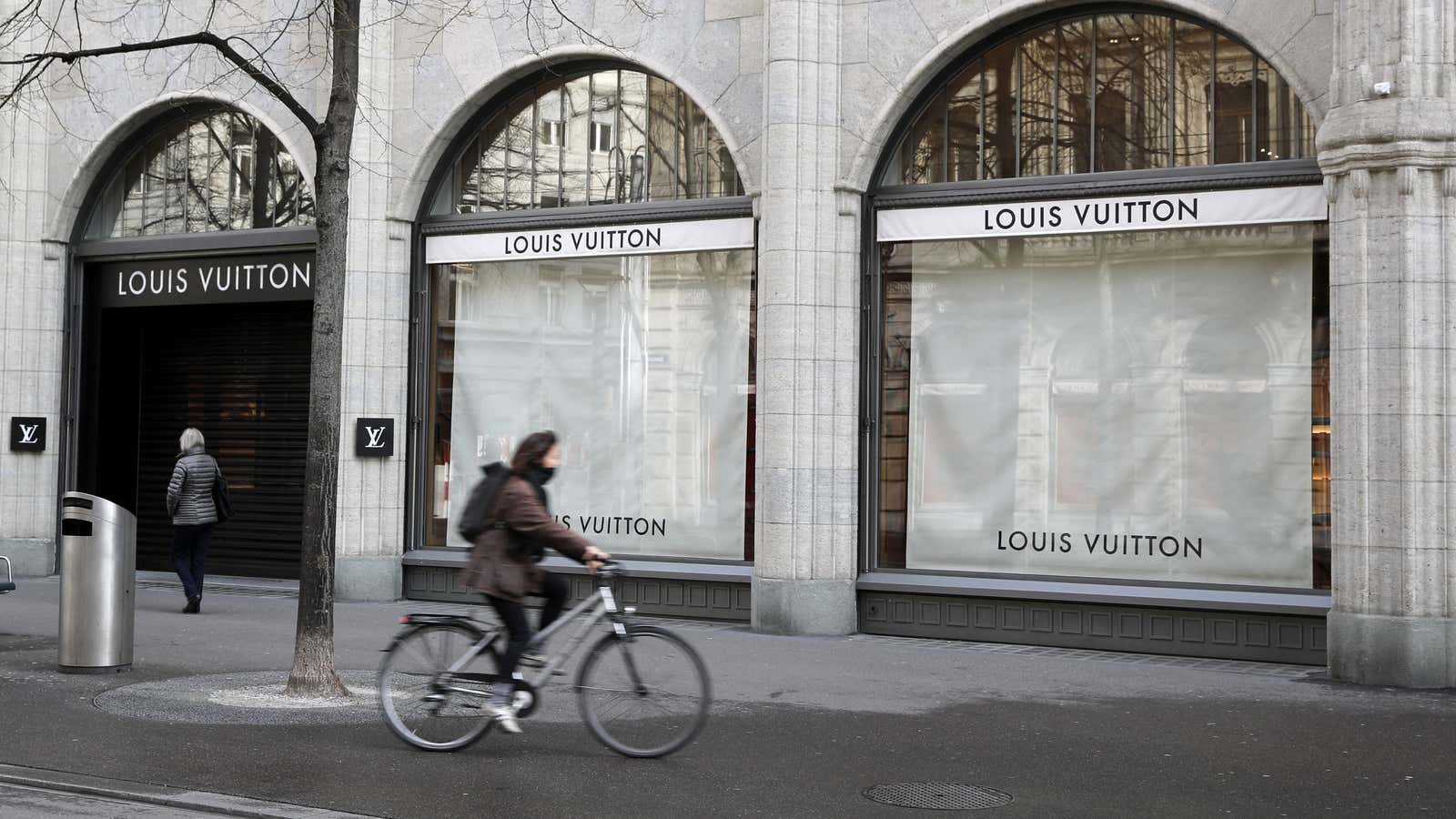When Covid-19 shut down much of China through February, the luxury industry already knew it was facing a bad year. Chinese shoppers are the biggest buyers of luxury worldwide and shopping froze as stores shuttered. Even cities such as Tokyo, Seoul, Paris, and New York felt the effects as normally high-spending Chinese travelers stayed home.
Since then, the situation has only deteriorated as the new coronavirus has spread across Europe and the US, with no return to normalcy in sight. In a March 18 note emailed to clients, investment firm Bernstein put it bluntly, saying the first half of 2020 is “likely going to be the worst in the history of the modern luxury goods industry.”
The luxury business has seen major disruptions before, including world wars and the 1918 Spanish Flu. But the industry’s current paradigm of globalized conglomerates relying on sales not just to the wealthy but, perhaps even more importantly, to burgeoning middle classes around the world has only existed since about the 1990s. Coronavirus is delivering the industry its greatest challenge—greater even than the 2008 recession.
Then, at least, Chinese shoppers were emerging as a fast-growing market, and their buying helped cushion losses in other markets. But Bernstein expects significant falls in luxury demand in China, Europe, and the US in the first half of 2020, and on top of all this, for plunging oil prices to slash sales in the Middle East too. “This scenario is worse than in 2008, as there doesn’t seem to be any offset—other than possibly a quantum of solace from online” sales, Bernstein said in its note.
That’s little comfort when luxury remains a predominately in-store business. Management consultancy Bain & Company estimates that online sales, while growing fast, still make up just 12% of luxury purchases. Meanwhile, in response to Covid-19, companies including LVMH (owner of Louis Vuitton, Dior, Celine, and more), Kering (owner of Gucci, Saint Laurent, Balenciaga), Chanel, Ralph Lauren, and others have temporarily closed stores in various countries.
One estimate from February already pegged the expected loss in sales for the industry at €40 billion ($43.4 billion), reducing 2020 sales to as low as €309 billion. But the situation continues to change, and not for the better. In February, Burberry warned of a “material negative effect” on sales due to the coronavirus’s impact on China. Today, it released an update saying that effect “has intensified and is now impacting the industry in all regions.” Since Jan. 24, sales at its stores open at least a year are down 40% to 50%, while about 40% of its stores globally are presently closed, with more to follow.
Some shoppers, of course, may just defer purchases until life returns to normal. But when that might happen is an open question, and many sales, especially of seasonal items, could just be lost.
High-end goods aren’t alone in feeling these effects. Mass-market chains Zara and H&M have halted production (paywall) as stores close and customers stop shopping. Adidas is set to watch sales in China alone fall by more than half in the first quarter, while investment firm Cowen estimates Nike’s quarterly sales will drop by a third.
“Terra incognita”—unknown land—is what Bernstein called the luxury situation. Nobody knows exactly what lies on the other side.
